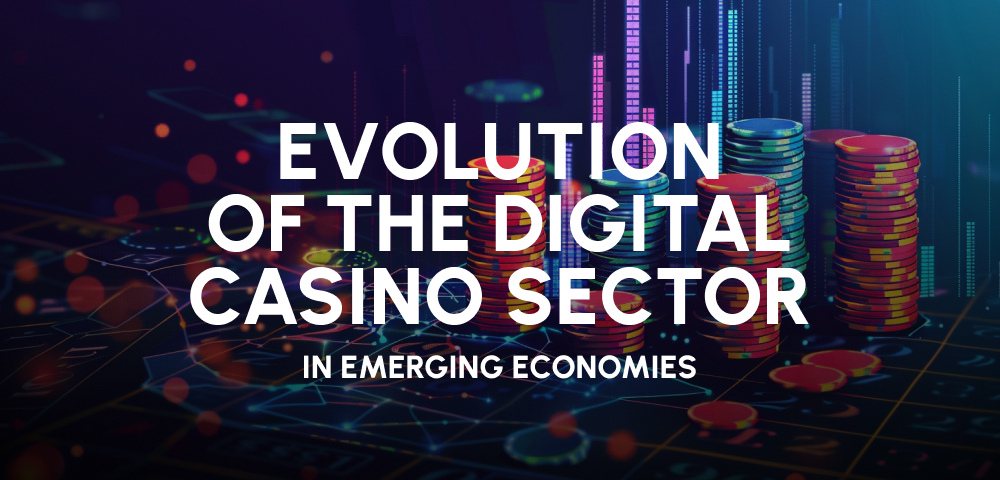Evolution of the Digital Casino Sector in Emerging Economies
The virtual gaming arena is witnessing a profound metamorphosis, especially in nascent economies. This elaborate discourse aims to unravel the complex array of hurdles and prospects defining the emergence of internet betting platforms in these territories. Through an exploration of the nuances of market movements, legislative structures, and tech innovations, we endeavor to furnish an all-encompassing review of the shifting terrain of the online gaming sector in underdeveloped countries.
I. Introduction to the Digital Gambling Sphere in Nascent Economies

Emerging economies present a fertile ground for the proliferation of digital gambling platforms, driven by rapid technological adoption and an increasing appetite for digital entertainment. However, this expansion is not without its hurdles, as it navigates through complex regulatory environments, varying degrees of technological infrastructure, and diverse cultural attitudes towards gambling.
II. Market Dynamics and Growth Potential
A. Economic Undercurrents and Consumer Behavior
The economic landscape of developing countries, characterized by burgeoning middle classes and increasing disposable incomes, creates a conducive environment for the digital casino market's growth. The shift in consumer behavior, with a growing penchant for digital leisure activities, further amplifies the sector's expansion potential.
B. The Digital Divide: Connectivity and Technological Access
Despite the growing internet penetration, the digital divide remains a stark reality in many emerging economies. Uneven access to reliable internet and digital devices poses a significant barrier to the universal adoption of online casino platforms, limiting market reach and growth prospects.
III. Regulatory Landscapes and Legal Hurdles
A. Navigating the Quagmire of Legal Frameworks
The regulatory landscape for online casinos in developing nations is often marked by ambiguity and flux. The absence of well-defined legal frameworks or the presence of stringent gambling prohibitions poses substantial challenges for operators seeking to establish a legitimate and compliant presence.
B. The Quest for Legitimacy and Consumer Protection
In regions where regulations are evolving, the quest for establishing a legitimate market involves not only adhering to local laws but also ensuring high standards of consumer protection. This includes fair play, protection of personal and financial data, and measures to prevent problem gambling.
IV. Technological Innovations and Infrastructure Challenges
A. Leveraging Cutting-Edge Technologies
The adoption of advanced technologies such as blockchain, smart contracts, and virtual reality offers online casinos in developing countries an opportunity to enhance user experience, ensure transactional integrity, and differentiate themselves in a competitive market.
B. Overcoming Infrastructural Constraints
However, the benefits of these technological advancements are contingent upon the underlying digital infrastructure. Inconsistent electricity supply, limited internet coverage, and low technology penetration are significant impediments that need to be addressed to fully harness these innovations.
V. Socio-Cultural Considerations and Market Adaptation
A. Cultural Attitudes and Gambling Perceptions
The socio-cultural fabric of emerging economies plays a crucial role in the acceptance and integration of online gambling platforms. Navigating diverse cultural attitudes towards gambling requires a nuanced approach that respects local norms and values while promoting responsible gambling practices.
B. Localization and Cultural Sensitization
Successful market penetration involves more than just language translation; it requires a deep understanding of local preferences, traditions, and gaming habits. Tailoring game offerings, marketing strategies, and user experiences to align with local cultural nuances can significantly enhance market acceptance and user engagement.
VI. Strategic Alliances and Collaborative Ventures
A. Forging Partnerships for Mutual Growth
Collaborations between international operators and local entities can serve as a strategic pathway to market entry and expansion. These alliances can leverage local knowledge, navigate regulatory landscapes more effectively, and build trust among local consumers.
B. The Role of Government and Regulatory Bodies
Engagement with governmental and regulatory bodies is pivotal in shaping a conducive environment for the growth of online casinos. Constructive dialogue and collaboration can lead to the development of fair, transparent, and supportive regulatory frameworks that benefit all stakeholders.
VII. Ethical Considerations and Responsible Gaming
A. Prioritizing Ethical Practices and Consumer Well-being
In the pursuit of market expansion, it is imperative that online casino operators prioritize ethical practices and the well-being of consumers. This includes implementing robust measures against problem gambling, ensuring transparency in gaming outcomes, and protecting user data.
B. Contributing to Social and Economic Development
Online casinos have the potential to contribute positively to the social and economic fabric of developing countries by generating employment, fostering technological skills, and contributing to local economies. However, this requires a commitment to responsible corporate conduct and a focus on sustainable and inclusive growth.
VIII. Conclusion: Charting a Path Forward in Emerging Digital Casino Markets
The trajectory of the online casino market in developing countries is fraught with challenges yet brimming with opportunities. As this sector navigates through the complexities of legal frameworks, technological barriers, and socio-cultural landscapes, the path forward demands innovation, adaptability, and ethical responsibility. By embracing these principles, the digital casino industry can unlock its full potential, contributing to the vibrant tapestry of the digital economy in emerging economies and beyond. In this dynamic interplay between opportunity and obstacle, the future of online gambling in developing nations holds the promise of an exciting and prosperous frontier, poised for significant growth and transformation.



























